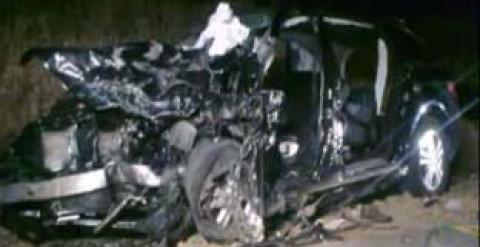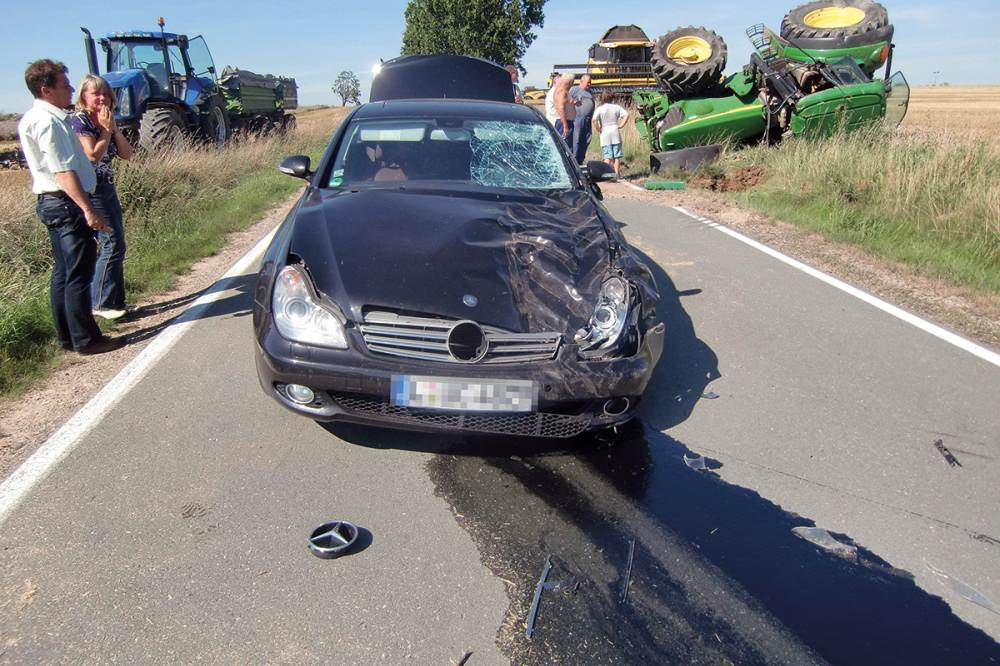
alextrat1966
-
Posts
241 -
Joined
-
Last visited
Content Type
Events
Forums
Downloads
Quizzes
Gallery
Blogs
Posts posted by alextrat1966
-
-
On 1/19/2022 at 7:19 PM, xylophone said:
Far too many posters who will question your integrity amongst other things, and that is why I have severely reduced the number of my posts, and I have been on this and its previous site since 2005, mainly because I'm fed up with their nonsense accusations.
Sorry that people don't tell you what you would like to hear. Sometimes it just so happens that it differs from reality.
Destroying your engine because you think putting petrol in the tank is all it's needed to run a car, has no forgiveness. And this comes from someone whose dad not so long ago destroyed a beautiful Mercedes OM642 engine, again for not checking the oil level...
If you wanna go defensive and think people have something against you, you're only fooling yourself then, oh and your wallet! cuz she's the one becoming thinner every time you "forget" to check the oil level.
Regardless of whether the dealer will/will not pay for the repairs, and regardless of whether the engine was/wasn't low on oil. I hope this serves as a lesson for OP, and he starts checking his oil at the very least once a month from now on.
-
 1
1
-
-
1 hour ago, richard_smith237 said:
OR... They did, they drained the oil and forgot to ‘refill’ and then tried to blame the Op for the oil being empty.
The op stated he drove just 20km (about) before the engine seized....
20km is way too much for an engine which has been drained to run.
At this point is metal grinding metal..... it may idle for 30 minutes, but the moment you put load on the engine (driving), it will be gone within seconds.
-
 1
1
-
-
3 hours ago, Mr Meeseeks said:
Here's mine, not far off for a lot less money.
...
Look under the hood and tell me what you see ????
-
12 minutes ago, Neeranam said:
Liver disease is often caused the food Thais eat, esp. in the NE. Khon Kaen has the highest rate of liver disease in the world, I believe.
Sadly, this is more than just liver disease.
The report mentions a relatively huge arterial enhancing mass in the liver .(7.2x7.4x8.3-cm) This is just a technical way of saying "cancer".
His liver will never recover from this, and it is likely that the cancer either has either spread from somewhere else to the liver, OR has spread from the liver to somewhere else...
Sadly, probably terminal.
-
 1
1
-
-
- Popular Post
- Popular Post
Insurance can't reverse death.
Be careful, motorbikes are very dangerous here. Save a bit more money and rent a car instead.
-
 4
4
-
 1
1
-
The app itself is terrible. But it does the job.
You can talk on the phone with a doctor and get your prescription sent to you.
-
4 hours ago, Yellowtail said:
A rod-knock getting oil might last a while, but I don't think a rod-knock not getting oil will.
Yes, surely if you top it up it will last longer than if you don't. But still the damage is already done. It's like a person with terminal cancer, no matter what treatments you do, you are only gaining time...
-
1 minute ago, DavisH said:
A seat ibiza is about 1000kg. How heavy was the benz? It's better to compare like for like in terms of mass when you compare the severity of the impact. Physics is on the side of the (much) heavier vehicle. But not all heavy vehicles are necessarily more safe (e.g. pickup trucks).
Yes sure, hence why the driver of the Ibiza died. But that still doesn't mean it's nothing for the Benz.
The fact that after such an impact at those speeds there was just about enough space in the passenger compartment tells a lot.
Don't know, but I've heard from EMTs that European cars do much better than Japanese and specially that Americans. I am a Mercedes fanboy so to speak, but even if I didn't buy Mercedes, I'd buy Volvo or something European.
-
32 minutes ago, richard_smith237 said:
World wide governing bodies and governments themselves do not agree with your opinion on this.
Here’s why:
The majority of accidents occur at relatively low speed, protecting people at a relatively low speed is still possible whereas protecting people at a 90 kmh impact (to zero) is extremely difficult - cars would’ve to be a lot longer than they are now.
Frontal collisions at 90kmh - 120kmh motorway speeds are extremely rare - roads on which we travel at these speeds are divided.
‘Pile up’s (rear-ending a stationary vehicle at 120 kmh has roughy the the energy as a frontal collision of two cars travelling at 60 kmh. NCAP tests replicate this.
There is also a human factor: Humans can tolerate a limited degree of G regardless of air-bags. Crumple zones in cars would have to be huge to limit this G at higher speeds - the cars would have to me much much longe to contain these crumple zones to below a humanly tolerable G at higher speeds.
If a car is travelling at 120 kmh, thats 4x the energy the car would need to be significantly long enough to dissipate the energy to less than 50-60 g tolerable by the human body - i.e. 4x longer !
A a car as long as a buss with the same ‘passenger compartment inside’ would be impractical.
In any car - hitting something stationary at 120kmh - you are dead, even if the passenger compartment survives - the G is just too much.
At 90 kmh, hitting a stationary vehicle or object in any car the passenger compartment may remain intact, but you won’t whether its a German car or a Japanese car.
Thus: NCAP crash tests are carried out at 64 kmh... it's not fashion, it's not marketing, its science.
Personally, from a safety perspective - I’d chose a Volvo XC-90 over any car... but my logic would be flawed, the car with the best grip which can brake the fastest is the safest as that has the best possibility of minimising G in a frontal indecent (most accidents involve a significant amount of braking before impact).
Your theory doesn't meet reality.
Quite a lot of people have survived frontal impacts at expressway speeds. A friend of mine while drunk driving crashed heads on at 152km/h with his Mercedes R320 against a Seat Ibiza which was traveling at 117km/h. Survived after 3 months in the ICU. (The guy in the Ibiza died on the spot).

The amount of G forces the human body can take for fractions of a second is extraordinary, sometimes as high as 200G without major injuries! And so protecting the passenger compartment is critical!
Any EMT would tell you cutting someone off a Mercedes/BMW takes three times more than if it were a Japanese car, this means the firewall in German cars is stronger than Japanese; which also matches the fact that Japanese cars are more light weight.

-
27 minutes ago, Woof999 said:
Wouldn't you expect some serious vibrations or rattling well before it finally gave up?
If my theory about oil starvation is correct, the engine would have been knocking for quite some time (rod knock). But rod knock is a sound that is not easy to tell by someone who is not very experienced with engines, so you may not have realized, specially if you never opened the bonnet! It's impossible to tell rod knock from the inside.
Other than that, I wouldn't expect serious rattling, when a bearing breaks or spun suddenly the crankshaft is faced with an enormous resistance, so the engine starts running rough and dying out til it finally dies seized solid (or very very hard to move).
-
 1
1
-
-
Guys don't be donkeys here...
If the dealer had drained the oil and not added new one, that engine wouldn't have lasted more than 2-3 km before completely seizing.
If maintenance had been neglected by the owner, and the engine had be running low on oil, the damage was already done. It made no difference whether the dealer topped it up on Friday.
If the engine seized by Monday, it means oil starvation damage by Friday was already too severe...
- Scored cylinders.
- Scored cams.
- Scored bearings (I suspect this is what happened, due to oil starvation the bearings wore over time till one of them was too thin and either broke or spun seizing the engine).
I know looking for blame on others, or saying Thais bad is the easy way out. But the only one to be blamed here is the owner. The dealer did nothing wrong. Even if they had added oil on Friday, that engine was mortally damaged.
-
 1
1
-
-
On 1/15/2022 at 9:23 PM, richard_smith237 said:
What makes you think that ?....
All vehicles have to pass safety tests and have NCAP ratings, the closest Honda (perhaps an Accord) would have very likely performed as well.
I’m not so sure the reputations of 30 years ago are as valid now as they once were.
I am afraid NCAP is just a powerful marketing tool used by manufacturers, but nothing more than that.
They test at speeds of 60km/h. Your chances of surviving a crash at 60km/h stand pretty high even with an old and insecure (compared to today's standards) vehicle.
What we are really interested in is crashes at expressways speeds (>90km/h)... And here is where you will find Mercedes are far safer than many Japanese cars.


Foreign ownership of house/land..... NPV calc for 30 year lease.... Usufruct with Thai law firm, no companies involved.
in Real Estate, Housing, House and Land Ownership
Posted
That's the problem you are facing with 1)... no matter how many clauses you add, you can still be in trouble.
So you should only do this with a big, financially healthy and reputable real estate firm, (but even this doesn't mean they won't go belly up in the future).